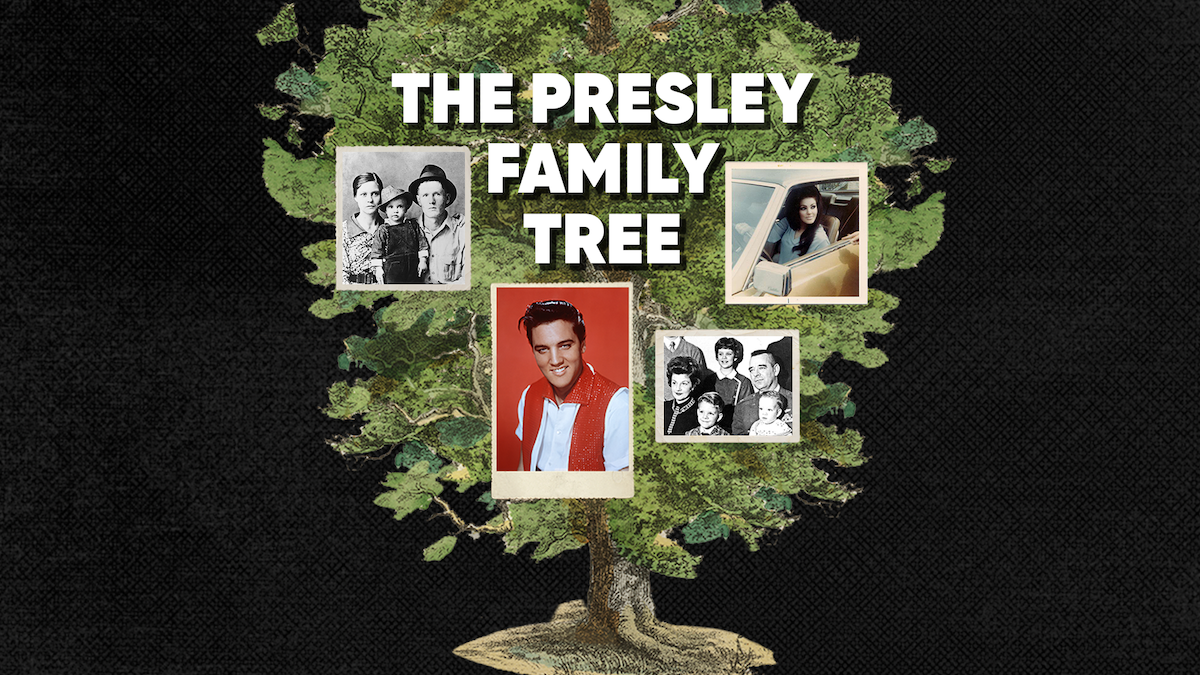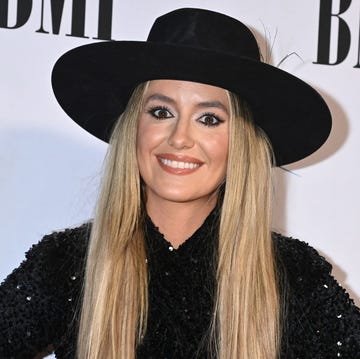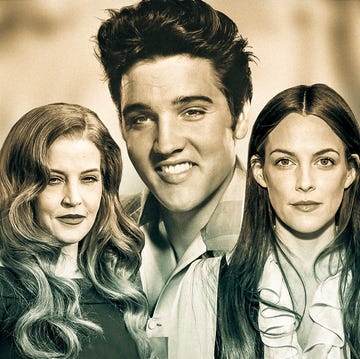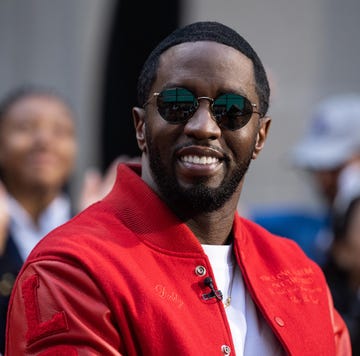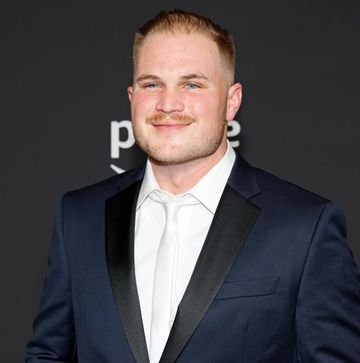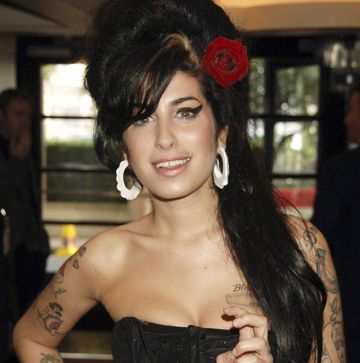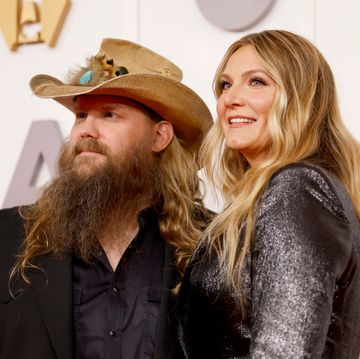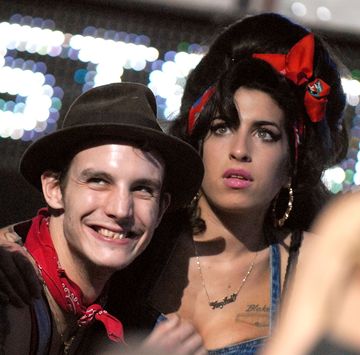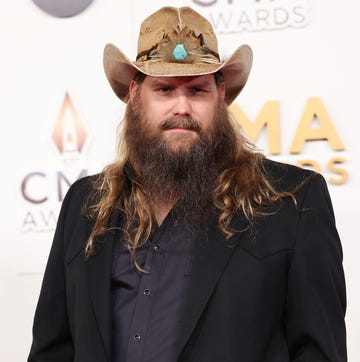New Kids on the Block are returning to cities across North America this summer. The quintessential 1980s boy band released Still Kids, their first album in more than a decade, on Friday and begin touring next month.
This year marks 40 years since the group—comprised of Donnie Wahlberg, Jordan Knight, Jonathan Knight, Danny Wood, and Joey McIntyre—formed. They started out as a group of kids from rougher parts of Boston, handpicked by music producer Maurice Starr, who had no guarantees of success.
But from the beginning, they were willing to be guided by Starr and ready to work hard on their music. By the late ’80s and early ’90s, New Kids on the Block sold millions of albums, had their faces on notebooks and lunch boxes and sleeping bags, and welcomed countless adoring fans to their concerts. Here’s how it happened.
Listen to New Kids on the Block on Amazon Music, Apple Music, or Spotify
The man behind New Edition went looking for another boy band
The story of New Kids on the Block is linked to another boy band from the 1980s: New Edition. Maurice Starr (originally Larry Johnson) was the producer and promoter who helped the five Black teens of New Edition achieve success. But after hits like “Candy Girl,” the group decided to separate from Starr, who lost a subsequent legal battle.
Starr was determined not to let this setback define him. Instead, he wanted to achieve even greater success—and he had an idea about how to do so. As he later explained to The New York Times, “If New Edition was as big as they were, I could imagine what would happen if white kids were doing the same thing.” In the summer of 1984, he asked talent agent Mary Alford to search hardscrabble Boston neighborhoods for white boys with the ability to rap, sing, or dance.
Donnie and Mark Wahlberg were the first members
In Dorchester, a working-class area in Boston, Alford found 14-year-old Donnie Wahlberg. Wahlberg then met and rapped for Starr, later telling People magazine, “I did one of my best spontaneous raps ever.” He became the first member of the group and was followed by his younger brother, 13-year-old Mark Wahlberg.
Donnie recruited other members. Friend Jamie Kelly signed on early. Then Donnie talked to Jordan Knight, who demonstrated his singing and dancing talents for Starr and was accepted to the group. Jonathan, Jordan’s older brother, didn’t want to be left out, so he became a member as well. Another of Donnie’s friends, Danny Wood got Starr’s approval after showing off some breakdancing skills.
However, none of them were New Kids at this point. For reasons known only to him, Starr originally called the group Nynuk, pronounced “na-nook”.
When the band got together, Boston was trying to desegregate schools
In elementary school, the Wahlbergs, Wood, and the Knights had been bused out of Dorchester as part of an effort to desegregate Boston schools. “Outside of school, it was a very controversial time,” Wood later said. “We were surrounded by chaos, but in school it was amazing. We didn’t feel all that. Everyone was open to being around everyone else.”
Donnie told Variety in 2019, “They intended to bring people together to learn about each other and be exposed to different things, and that’s what happened to us.” Busing not only introduced the boys to new music and other parts of life, it later allowed them to be comfortable traveling to a largely Black neighborhood in order to work with Starr. Having Starr, a Black man, as a producer, choreographer, and songwriter for white performers also set them apart.
Two of the original members left before Joey McIntyre joined
After a few months, Mark left Nynuk (though he later found fame as Marky Mark and then as an actor). According to his brother, Mark either “wanted to go out and steal cars with his friends” or preferred to “play basketball.” Kelly also made an early exit from Nynuk. This might have been due to a lack of talent or simply a lack of commitment.
However, Starr felt the group needed a fifth member. After none of the auditions set up by the four remaining members worked out, he again turned to Alford to find a kid who could sing and dance. They landed on Joey McIntyre, a 12-year-old who lived in the neighborhood of Jamaica Plain and who had often performed at his local community theater. McIntyre passed his audition, singing Nat King Cole’s “L-O-V-E,” but he didn’t jump at the opportunity to join the group. “I thought Dorchester was too far away,” he later told People. “The others were all buddies. I didn’t want to do it.”
McIntyre eventually signed on, in part because he was a fan of New Edition. Yet he came to regret this decision. Nynuk’s other members, who were all a few years older, hazed the newest member of their group to the point that McIntyre wanted to leave. But he changed his mind after Donnie phoned and persuaded him to continue by telling him, “We want you to shine. You can make us great.”
At an early performance, the crowd threw things at the band
Nynuk rehearsed diligently and took just about any gig they could get, be it in talent shows, social halls, or retirement homes. One performance took place at a men’s prison that housed one of Wahlberg’s brothers. There, the band threw out cigarettes to win over the inmates.
During an early gig at the Franklin Park Kite Festival, Nynuk faced a jeering crowd that started throwing things at them. Wood’s face was cut by a flying record, but Wahlberg insisted they perform because he didn’t want a classmate in the crowd to see them back down. The crowd appreciated their tenacity and applauded. “Going back onstage was simply about us believing in ourselves and wanting to stand our ground,” Wahlberg later said.
Their first album flopped
In 1986, the group was signed to the R&B division at Columbia Records. However, the label didn’t care for the name Nynuk. As the boys had never liked the name either, they were happy to become the New Kids on the Block, a name shared with a rap song that had been co-written by Wahlberg. Their first album, the eponymous New Kids on the Block, was released the same year they got their record deal.
Although the New Kids were white teens, their music was considered “Black” because they liked and performed rap and R&B. Starr intended for the group to win over Black audiences before crossing over to white ones. However, that plan didn’t work for this album. Only one song, “Be My Girl,” charted on Billboard’s Top 100 Singles.
After the first album flopped, their label considered dropping the New Kids. Fortunately, an A&R representative still believed in the group and stood up for them.
A Florida radio station turned NKOTB into stars
In 1987, the New Kids worked on their second album, much of which was recorded in a studio at Starr’s house that lacked soundproofing and other amenities. And though Starr was still writing their music, they were now more confident and adding their own touches.
When Hangin’ Tough came out in 1988, Starr still wanted the group to target Black audiences. The video for the single “Please Don’t Go Girl” was released to BET, and Starr focused on Black radio stations, where he had connections from his days with New Edition. But then a Florida pop radio station started playing “Please Don’t Go Girl.” The requests poured in, and plans for promoting the album shifted.
The New Kids on the Block had found the young girls who would make up their devoted fan base. After a tough beginning, they were on their way to stratospheric success.

Sara Kettler is a Connecticut-based freelance writer who has written for Biography.com, History, and the A&E True Crime blog. She’s a member of the Writers Guild of America and also pens mystery novels. Outside of writing, she likes dogs, Broadway shows, and studying foreign languages.




